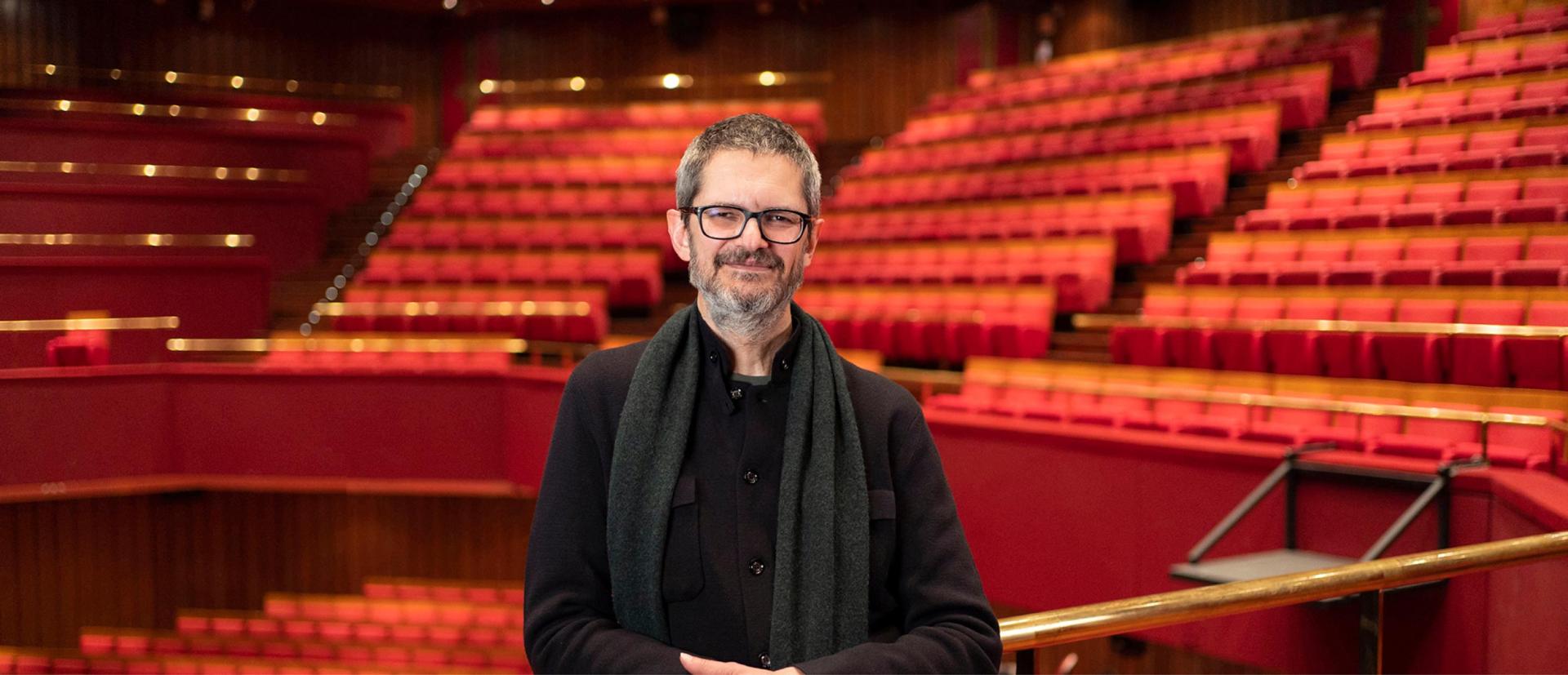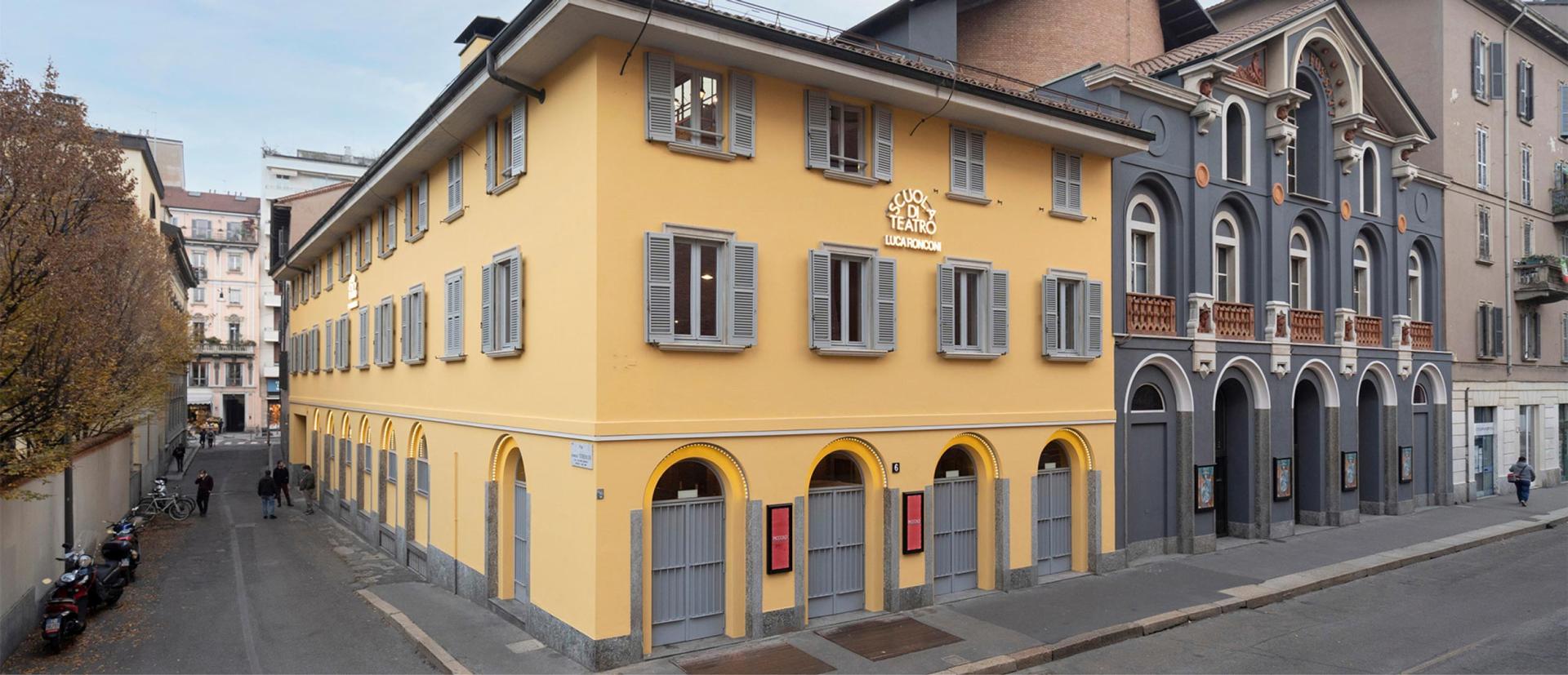The story of the Piccolo

The story of the Piccolo
The first public repertory theatre in Italy, the Piccolo Teatro di Milano was founded on 14 May 1947 by Giorgio Strehler and Paolo Grassi, together with Nina Vinchi, with the aim of creating a Theatre that provides a public service; an essential artistic and cultural institution responding to a collective need and thus working to the benefit of the entire community.
“An Art Theatre for All” is the motto and underlying principle that has accompanied the Piccolo ever since it was founded, and that continues to express its mission: staging quality shows aimed at the most wide-ranging of audiences possible.
With support from the State and local administration – first and foremost the Municipality of Milan and the Lombardy Region – the Piccolo currently runs three auditoriums: the original location in Via Rovello, renamed the Teatro Grassi, is situated in Palazzo Carmagnola and, since 2009, also includes the magnificent Renaissance Cloister named in honour of Nina Vinchi, which was brought to light and reopened to the city through a restoration project; the Teatro Strehler, the main venue, designed by Marco Zanuso and inaugurated in January 1998 to the music of Così fan tutte by Wolfgang Amadeus Mozart, the last production to be directed by the great director after whom it is named; the Teatro Studio Melato, an experimental theatrical space dedicated to research and education and named in honour of the actress Mariangela Melato since 2014. Its home is the site of the nineteenth-century Teatro Fossati, which was reopened to the public in 1986. The building also houses the “Luca Ronconi” Theatre Academy, founded by Giorgio Strehler in 1987. Over the years, the Piccolo has also developed a sets workshop and a costume department to support operations.
Over seventy-seven years of activity, the Piccolo Teatro has produced more than 400 shows – many of which were directed by Giorgio Strehler –, offering major productions of both classic and contemporary writers that have over time become part of international theatrical history. With regard to Strehler’s works alone, these productions include: William Shakespeare (King Lear and The Tempest), Carlo Goldoni (Harlequin, servant to two masters, Brawling in Chioggia, The little square), Anton Chekhov (The Cherry Orchard), Bertolt Brecht (Threepenny Opera, Life of Galileo, The Good Person of Szechwan) and Samuel Beckett (Happy days).
Since 1991, the Piccolo Teatro has also been a “Theatre of Europe”, a status confirmed by article 47 of Italian Ministerial Decree 322 dated 27 July 2017, as amended. Strehler was the first to strongly promote a vision of openness and to seek a position in the international theatrical panorama, and this philosophy was carried forward under the directorship of Sergio Escobar – who headed the Foundation from 1998 to July 2020 – and of Luca Ronconi (artistic consultant and director of the Theatre Academy until February 2015).
During his time in Milan, Ronconi wrote a number of extraordinary theatrical masterpieces during the dawn of the new millennium, which – among their many merits – celebrated the interdisciplinary nature of theatrical expression. This was the case with Infinities by the English mathematician John D. Barrow, a literal theatrical experiment staged in the ex-workshops of La Scala in the Bovisa district for the 2001/02 season, or with Lehman Trilogy (2015), an epic ballad that explored the downfall of Western capitalism and was the last production to be directed by the maestro, based on the piece by Stefano Massini – who soon after was called on to take over as artistic consultant from 2015 to 2020.
It is thanks to these figures, and to the commitment of all the artists, workers and craftspeople who have played a role in its history that the Piccolo is now an urban and European centre for culture, with its stages playing host to theatre and dance, reviews and festivals, round tables and cultural events.
Since December 2020, Claudio Longhi has served as the Director of the Piccolo. Under his guidance, in addition to the traditional rich programme of in-house and guest productions, the cultural policy of the Theatre has focused on supporting contemporary playwriting, promoting young artists, internationalisation and the development of European networks and programming. In particular, as of the 2021/22 season, the Piccolo has become – in line with the desires of its founders – a veritable “home” to artists. The theatre now collaborates with fifteen Associate Artists from Italy and abroad, with the conviction that the theatre’s activities are not confined to the production of shows, but must also serve to favour processes of exchange, creation and cooperation, allowing spectators to connect not only with the performance themselves but also with the related processes.
On the occasion of the celebrations for the one hundredth anniversary of the birth of Giorgio Strehler, the 2021/22 season also saw the launch of the Festival Presente Indicativo, a grand expression of international theatre that, for the May 2022 edition – per Giorgio Strehler (paesaggi teatrali) – saw the participation of 21 theatrical companies and ensembles involved in 25 shows performed in the Piccolo’s auditoriums and throughout the city, offering a total of more than 70 hours of theatre. May 2024 saw the presentation of the second edition of the Festival: Milano Porta Europa, a kaleidoscopic exploration of the multitude faces of contemporary Europe, of its contradictions, its hopes and its opportunities.
Last, but not least, through its various activities, the Theatre dedicates significant attention to dialogue with the community and to the theme of sustainability in the broadest and most inclusive sense of the term, examining relations between the environment, the economy and society.
In December 2024, reflecting the original diarchic nature of the leadership of the Piccolo Teatro, the governance of the Foundation assumed a new structure. The Board of Directors of the organisation unanimously voted to renew the mandate assigned to the Director Claudio Longhi who, as part of his role as artistic director of the theatre, has also taken on the management of the “Luca Ronconi” Theatre Academy, and also appointed Lanfranco Li Cauli as Delegated General Director, responsible for technical and administrative operations.
To underscore the educational vocation of its Masters, the Piccolo Teatro has also launched a specialised master’s course for actors, overseen by Andrea Chiodi. This marks a return to tradition in shaping the future and, fully embracing the spirit of serving the Institution and the community, continuing to ensure that the Piccolo Teatro upholds its international standing.


